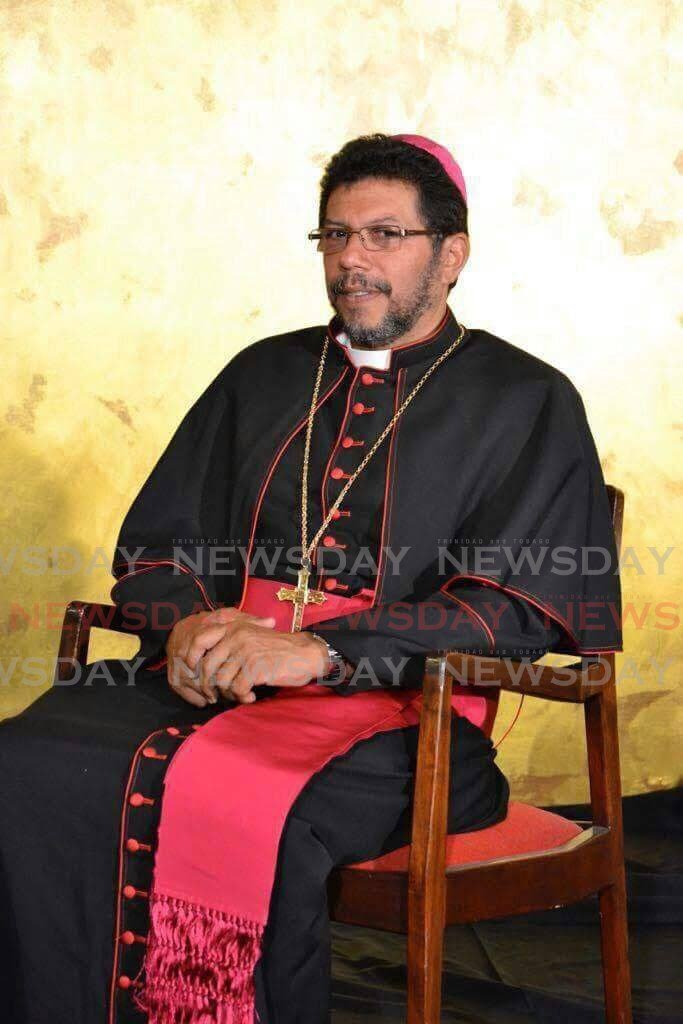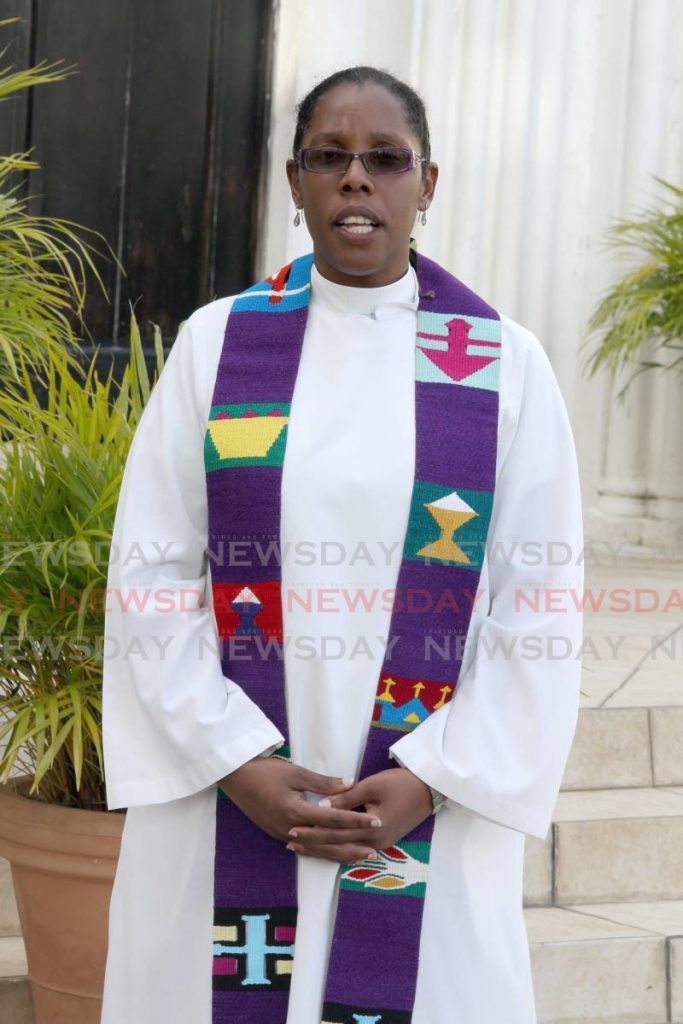How TT Xmas has changed

THERE are many things one could point to as making a uniquely TT Christmas – perhaps sorrel, parang, pastelles or ponche de crème.
Traditions change as time passes. There is growing evidence that TT’s way of celebrating Christmas is fast changing.
In an online Newsday poll, some readers said visible signs of a changing TT Christmas included less parang and soca parang on the radio, crime, no house-to-house parang and a shift of focus from Christmas to Carnival.
A reader said on Newsday’s Facebook page, “Too many calypsoes on radio. Long time it was Christmas carols.
"You can’t drive around looking at the lighted homes without feeling you will be held up if you drive too slow or a firecracker busting under your car.
"It's all about the money, no homemade gifts, traffic unreal, no more Christmas carollers coming to your door.”
Another reader said while many people were financially richer, many were now time-poor. The reader said he does not think anyone makes a Christmas tree any more.
“People still redecorate homes, put up new curtains but something seems absent,” he added.
He said communal Christmases were a thing of the past.
The National Library and Information System’s (NALIS) website said TT’s Christmases of today are similar to what happened in the past.
The preparation of food, the music, and the warmth and love of community were as much a signature part of TT’s Christmases as they are now.
“Many months before Christmas, preparations for this festival would begin. In rural communities, local farmers and individual households would rear pigs in anticipation of receiving pork or ham at Christmas...
“Homes owned by various families – whether rich, middle class or poor – would be cleaned thoroughly and painted with new coats of whitewash. While male members of the household attended to the painting, polishing, yard cleaning and repairs, the female members of the household would focus on cleaning and decorating the inside of the house, sewing new curtains, and preparing food, drinks and homemade liqueur (syrup with rum and prunes and other ingredients).”
Historian and Newsday Tobago columnist Dr Rita Pemberton says TT’s Christmases have changed because the mode of living has changed, and by that she means TT has becomes more modernised, which has eroded some of the usual communal Christmas activities. She said people were more individualistic.
Speaking specifically about Tobago, Pemberton said long ago Christmas was a community event with people baking, singing and carolling.
“I don’t know that people go carolling any more, for example,” she said.
However, the food traditions have been maintained, although they are now infused with new things.
“Where in the past you used to boil a ham in a biscuit tin on a fireside outside, so everybody smells the ham, where the cakes were baked in a dirt oven and several people used the same oven, that sort of interface has changed."
Now, though, many people order food from prominent restaurants for Christmas Day.
Chef Khalil Ali, owner of Peche Patisserie in Chaguanas, said a lot of young professionals, who are always busy, appreciate convenience and high quality. This group prefers to have their meals catered, he said. Ali said the restaurant does take-out and has hundreds of orders for Christmas Day.

“Turkey, leg of lamb, fish, shrimp, a lot of sourdough bread...and we expect everything to go.”
Orders for Christmas come in from early November, he added.
Rachel Branker, manager at Aioli’s Market Place, Maraval, also said many people now have their Christmas meals catered. Aioli has had 150-200 orders for the season. Like Peche Patisserie, Branker said orders began coming in from as early as November.
Asked if she believes more people have catered food now as opposed to preparing their own meals, Branker said it is mixed: they prepare some aspects of their Christmas meal and order others.
Pemberton said long ago people’s homes were “put away," meaning people's homes were scrubbed up and new curtains put up.
“You turned the house upside down. That was the tradition. You took down all the curtains, you took off the cushion covers and everything was packed away three weeks before Christmas,” she said.
When people walked through the house there was a dramatic transformation on Christmas Day – sometimes the transformation made it impossible to function, if, for instance, the floors were sticky because they had been varnished or polished days before.

“It used to be nobody should see what you were coming with on Christmas Day. So you took down everything and then everything went up on Christmas Eve night. Usually, people were not finished and Santa Claus would arrive in the morning and people were still busy putting in the final touches.
"So there was that element of surprise and that sense of achievement having got there. But it was torturous for some people,” Pemberton said.
As Pemberton said, a major part of Christmas in TT is getting new curtains. Gary Aboud, CEO of home furnishing company, Mode Alive Trading, said while people are still buying curtains in preparation for Christmas, he believes the style of purchase has changed.
“The population has zoned into home-decor function. Unlike earlier years, when I was a young man, TT has developed a very cultured sense of its own style.
“Most companies simply buy what other nations have designed. But Mode Alive has tailored very particular design capabilities to modify and create our own colour blends and our own designs.
“The future is indigenous and individual,” he said.
Like some of Newsday’s readers, Pemberton questioned whether people focused on the religious aspect of Christmas any more.
“People go to church on Christmas Day or Christmas Eve night, but the whole centre of Christmas, of the birth of Christ and what that means for human interaction, is becoming less and less visible in the minds of many. As a consequence, our Christmases have been marred by a lot of negative happenings.”
Both RC Archbishop Jason Gordon and Anglican dean the Very Rev Shelley-Ann Tenia said Christmas Eve masses continue to draw large groups.
Gordon in a phone conversation with Newsday, said families come with children and grandparents.

“It is one of our big nights. I don’t know that the numbers have gone down over the years, because when I ask around, people tend to have very big crowds and very big celebrations on Christmas Eve night,” he said.
Gordon added that older people prefer to go to mass during the day.
The RC Cathedral in Port of Spain has 9 pm and 9 am Christmas masses.
Tenia said because it is hard for parishioners to get home, the times of the Anglican churches’ masses have changed.
In a phone interview with Newsday, she said, “It has shifted from what would be 10.30, 11 pm to 9 pm.
“We are still trying to maintain the vigil, but we have made it a little earlier, and the primary reason is because of people’s sense of safety.
“When people come to the later service, getting back home is often difficult because taxis are not working any more, and many of our worshippers travel.”
She added she does not see the keeping of the vigil (a period of keeping awake, especially to keep watch or pray) changing any time soon.

Asked if the local Christmas traditions will last well into the 21st century, Pemberton said the traditions will endure only if a conscious effort is made to preserve them.
“I think there are possibilities for us to hold on to those traditions, particularly in the rural areas.
“But I think there must be part of our developmental thrust not to move away from the things that made us.
"That is how we are to maintain our traditions. Otherwise we would just be blowing in the wind and not being sufficiently rooted in ourselves, our communities and our traditions.”

Comments
"How TT Xmas has changed"